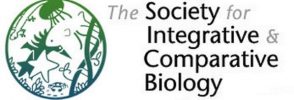Message from the DEE Leadership
Frances Bonier, Chair, chair.dee@sicb.org; Christine W. Miller, Secretary, secretary.dee@sicb.org; Martha Muñoz, Program Officer, dpo.dee@sicb.org; Anusha Shankar, Graduate Student/Postdoctoral Representative

Hello SICB DEE Colleagues and Friends!
We are excited to announce that abstract submission numbers are back up to pre-pandemic levels! We are all looking forward to meeting up in person and hearing about cool research in Austin in 2023. With the recently-approved divisional dues, we should be able to support a larger and more inclusive Beers & Brains event – we hope to see many of you there.
Here is a rundown of your current and future DEE Officers: Fran Bonier is Chair until the end of the 2023 meeting, when current Chair-elect Tonia Schwartz will take over. Christine Miller is finishing up her term as Secretary in January 2023, when current Secretary-elect Ryan Earley will take on the role, and Martha Muñoz is Program Officer until 2024. Following this year’s elections, we welcome our new Chair-Elect, Christian Cox. Christian is an Assistant Professor at Florida International University and a research associate at the Smithsonian Tropical Research Institute. Kristi Montooth is our new Program-Officer Elect. Kristi is the Susan J. Rosowski Associate Professor of Biology, University of Nebraska-Lincoln. So glad to have you on board! We are so grateful to the many DEE members who have stepped up to serve our division and run for elections – if you are interested in learning more about ways you can get involved in SICB DEE operations, please reach out to one of us. If you are interested in being a Secretary for DEE, elections will be held in 2023, with Chair-Elect and Program-Officer Elect in 2024.
Martha Muñoz, your Program Officer, just joined the SICB-wide Program Officer, Thom Sanger, and all the other divisional program officers, to work out programming on-site in Austin, Texas. The Division of Ecology and Evolution will have a big presence at the upcoming January meeting. We will have more than 165 talks and nearly 100 posters affiliated with our division! We are a broad, integrative division, so DEE-centered abstracts spanned the gamut of research covered by the society. Some common themes Martha noticed were global change biology, ecophysiology, and genomics/transcriptomics. As in previous years, the Huey Best Student Presentation session will happen on the first morning of the conference. We have an excellent lineup of finalists, and this session consistently proves to be one of the most engaging and well attended. We hope to see you there!
In addition to our usual programming, DEE is supporting several symposia at the upcoming meeting. These are: (1) Pathways to adulthood: environmental, developmental, and evolutionary influences on the ontogeny of form and function, (2) Daily torpor across birds and mammals: Recent progress and how do we advance the field?, (3) Large-scale biological phenomena arising from small-scale biophysical processes (SICB-wide), (4) Envisioning a Diverse, Inclusive & Safe Future for Field Biology (SICB-wide), and (5) Sexual diversity and variation (SICB-wide). In addition to our upcoming Beer & Brains Event, DEE will be participating in a joint social with the Division of Botany and the Division of Phylogenetics at Comparative Biology. This social will take place on Thursday January 5th in the beautiful Zilker Botanical Garden.
Anusha Shankar’s term as our division’s postdoc representative ends with this January 2023 meeting. She has been working to improve communications and outreach (you can find us on Slack, Twitter, and Facebook – message the @SICB_DEE twitter account if you want to be added to the Slack!). She is also starting to plan the networking social event at SICB 2023. Our intention is to keep growing it bigger and increasing inclusivity – this is helped greatly by our new divisional dues.
In the past, we have been limited in how many DEE members we could include in the networking event because of our limited budget. The measure to add divisional dues for the 2022-23 year passed by a large margin, but not everyone supported it, so we wanted to reiterate our motivation and rationale for these dues. First, we wanted to support more people getting to attend this long-standing mentoring and networking event. Last year we had about 60 people attend; in previous years it was around 30-40. One of the suggestions that has often come up in past discussions on this issue was that the dues ought to only be paid by full faculty members and not student and postdoc members. This idea had broad support; unfortunately, we have learned that member category-specific divisional dues would be very difficult to implement on the web form. So, instead, we are committed to keeping these dues as low as we can (the current plan is for it to be $5 per member for 2023 membership) so that they do not become a barrier to division membership, especially for our early career members. With a small increase in dues for everyone, we are optimistic that Beers & Brains (or whatever we end up calling it) in 2023 can be a big, inclusive event!
As with the SICB 2022 Beers & Brains, this year we will match mentors with 3-4 mentees at a time, and mentors will rotate. We will have food and drinks at the event and send out a sign-up sheet soon – look out for divisional emails asking you to sign up! It is usually first-come-first-served, so make sure to sign up early.
For many of us, the SICB meeting represents some of the best of science and reminds us why we chose our career directions. Dig in and immerse yourselves – there are hundreds of great DEE talk and poster contributions this year across SICB. We wish you a great meeting.
One further note: Please do come to the SICB DEE Members Meeting. In addition to our usual business, we hope to discuss ways to innovate our programming for the future, and your input is vital. We hope to see you there!
DEE Student and Postdoctoral Profiles
We are thrilled to continue our tradition of highlighting early career members of SICB DEE. Welcome to Yichen, Julia, Anthony, and Alex! We are looking forward to seeing you at SICB 2023 in Austin.
Yichen Li
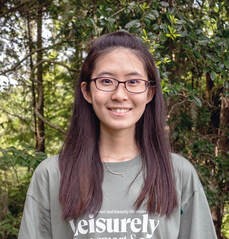
Research interests: I am mesmerized with observing and understanding insect behavior, and how it may change based on environmental contexts. For my M.S. research, I am working on investigating competitive injuries and mating behaviors in leaf-footed cactus bug and how they change with nutrition. Specifically, I am examining the consequences of male-male competition for female injuries. Males in Narnia femorata (Hemiptera: Coreidae) frequently fight over mates and territories and have also been observed attacking mating pairs. I am planning to conduct both behavioral trials and arena experiments to observe for the potential effects on females. My plan is to keep doing research on insect sexual behaviors going forward.
Hobbies: I like practicing a variety of dances including Chinese traditional dance, K-pop, and jazz with my dance crew members, macro-photographing insects, watching documentaries and TV series, and doing color-penciled drawing.
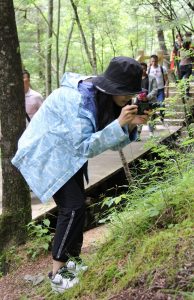
Most excited about for 2023 SICB meeting: I am excited about being able to learn science from people doing research on wide range of topics and connect with them!
One of your strategies for success in science: Being enthusiastic and motivated for what you are working on while not forgetting your original intention of being in the field. For doing research, I find it is helpful to break big-pictured goals into small ones and tackle them one at a time. It is also important to reach out to more experienced people when you get stuck!
Recent news or your immediate plans for your work: I am currently working on my Master thesis proposal and am looking forward to conducting my experiments.
Personal website: https://yichenliweb.weebly.com/
Julia Kendrick
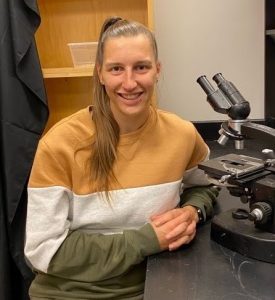
Research interests: I am an integrative biologist exploring the ecological relevance of relationships between individual behavior and physiology. I’m particularly interested in the physiological basis of competitive ability and how parental environment effects offspring behavior and physiology. I work with a species of burying beetle that uses carrion as a food source for both parents and larvae during breeding. These beetles face constant, intense competition from microbes, which they cope with by covering the carcass in secretions containing gut microbes and lytic enzymes. My current research asks what role the beetle gut microbiome plays in microbial competition, and how altering the gut microbiome impacts inter- and transgenerational fitness.
Hobbies and interests: Outside of science I spend my time coaching, playing, or watching soccer, usually with my dog in tow. My partner and I also serve as a foster family for dogs at the Kingston Humane Society, so there’s seldom a dull moment in our house.
Most excited for SICB 2023: This will be my first year attending SICB! I’m excited to meet people in the field and hear new ideas and emerging methods. I’ll be giving an oral presentation of my work, come check it out!
Advice for young scientists: Genuinely consider the “What if…” and “I wonder why…” questions that occur to you while working. Following your curiosity will ensure you stay passionate about the work you do and can lead to something new and cool. Remember, this is how science started!
Personal website: https://juliakendrick21.wixsite.com/julia-kendrick
Anthony Snead
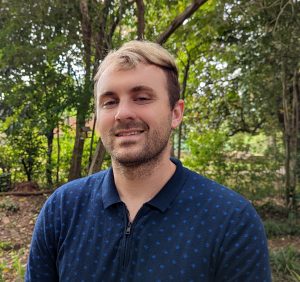
Research interests: As an interdisciplinary ecologist and evolutionary biologist, my research focuses on quantifying responses to environmental change across biological scales (Individual to Community) to predict the impact of future anthropogenic activities. Currently, I am using Kryptolebias marmoratus, the mangrove rivulus fish, to evaluate 1) temperature-induced plastic gene expression, 2) the impact of biotic and abiotic conditions on population dynamics, distribution, and community structure, and 3) the role of oceanography in determining gene flow patterns, metapopulation structure, and spatial patterns of genetic diversity. With the help of highly collaborative projects, I have recently begun to expand my work with long-read sequencing techniques and time-series genomic data to explore the role of structural variants in macroevolution and the temporal dynamics of evolutionary processes, respectively.
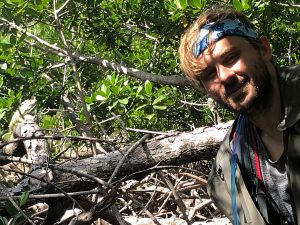
Hobbies: I love being in the water and enjoying nature. I am constantly itching to go SCUBA diving, but swimming often has to be good enough. I also enjoy hiking and playing the piano.
Most excited about for SICB 2023: After working with the editorial team to organize the bundle on temporal genomics over the past year, I am excited to meet everyone in person. I also looking forward to hearing about all the diverse research ongoing and presenting some of my recent transcriptomic work.
One strategy for success in science: I feel that my key to success is time management. I try to create flexible short-term goals within longer-term projects to keep myself from falling behind or feeling overwhelmed.
Recent news: I recently had two manuscripts accepted by Integrative & Comparative Biology, and my bundle on temporal genomics is in press, so look out!
Personal website: www.anthony-snead.com; Twitter: @AnthonyASnead
Alexandre Palaoro
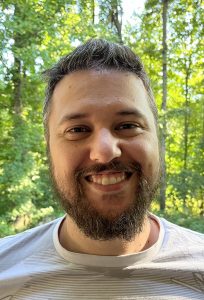
Research interests: I want to understand how the extraordinary evolves. That’s why I focus on a structure that is frequently evoked to show the extreme lengths in which evolution can push animals to: animal weapons. To understand weapons, I use various perspectives (e.g., behavior, physiology, biomechanics) at various levels (e.g., individual level, phylogenetic comparative methods). In my current postdoc position I expanded to another extraordinary structure – the long proboscises of hawkmoths. Let’s see if the framework I apply to weapons can tell us how the proboscis got long.
Hobbies: I played video games semi-professionally when I was younger, and it stuck with me. So, you can say a enjoy playing video games (euphemism) and RPG (the old stuff, with pen and paper).
Most excited about for SICB 2023: This is my first in-person SICB, so I honestly just want to see all the smart people presenting their awesome work. I can’t wait to enjoy the environment teeming with ideas for the first time.
One strategy for success in science: Success means different things for different people. So, find what success means to you. For me is more about having deep, meaningful connections with people. Doing this gives me a sense of belonging that allows me to move forward. Also, therapy. Lots of therapy.
Recent news: My first MS student (Aline Candaten) defended recently and that made me super happy. There is the obvious reason of studying a cool system (we found out why gladiator frogs have a spine on their thumb that they stick on their opponents during fights). But there is also the more personal side of seeing someone thrive despite the struggles of the pandemic, moving between countries and other personal stuff.
Personal website: http://www.alexandrevpalaoro.eco.br/; Twitter: @AVPalaoro
